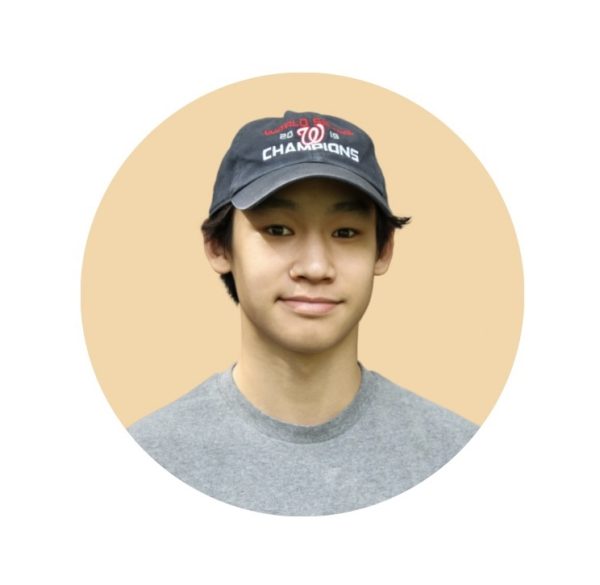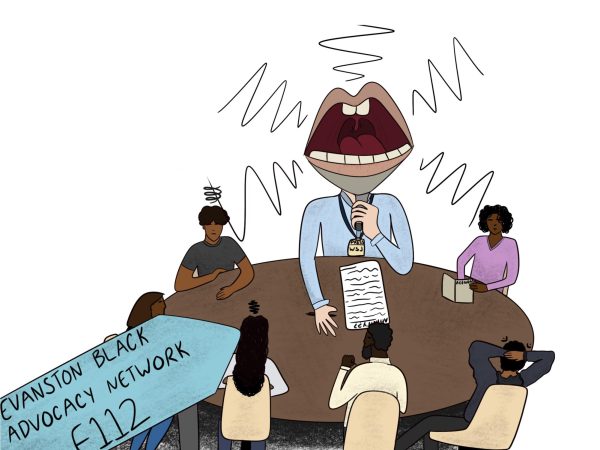Opinion | ETHS’ sophomore advisory program misses the mark
This year, ETHS is trying out a new Sophomore advisory program. The objective is to provide opportunities for sophomores to organize their goals and start to plan for their future. However, this program has turned out to be completely ineffective, unengaging and pointless.
The program is SASH (Sophomore Advisory Study Hall). In this program, every sophomore receives a Google Classroom link, where weekly assignments about career planning, goal setting and more are posted. All of these assignments are through SchooLinks, which is a college and career readiness platform that intends to prepare students for their post-high school lives. The assignments that are given are not graded or required to complete.
This is where the problem comes in. Without motivation, students simply aren’t interested in completing their assignments. Sophomore Grace Rich said, “They’re not graded. They’re not required. They’re just not high on my priority list.”
And she isn’t the only one. I asked 62 students if they do their SASH assignments, and only 21 said yes. If a student did do their assignments, I asked if they found them helpful. I discovered that some of the people who participate only did the assignments because they thought they were mandatory. Others said they do them but don’t actually get anything out of it. Of the 62 people, not a single person claimed that this program has been as beneficial as it is claimed to be.
Another issue with the assignments is that they are repetitive. Many times, students find that they are doing the same projects in SASH that they did in their freshman year advisory class. While this is a minor issue, it shows the lack of attention that is given to SASH by administrators. There has to be some responsibility within ETHS for making sure that these assignments are organized and well-prepared.
Additionally, students are given surveys on SchooLinks that give them potential career pathways. Students are asked to answer a series of yes or no prompts about their personality and decisions and are judged based on their responses. Multiple students have found that this survey forces them into categories that they don’t like.
For example, sophomore Ava Rosenberg was told by the survey that she should be a doctor. Her response was, “That’s the opposite of what I want to be. I don’t want to be anything in science.” So why are we, as students, wasting our time receiving inaccurate guesses at what we should be when we grow up? I have no idea. “If these are the results popping up, students shouldn’t be relying on them, because it’s probably going to be wrong. It is not the best way to measure what we actually want to be,” Rosenberg said.
Overall, there is a recurring problem here. These assignments aren’t engaging enough for most students to complete, and those who do complete them aren’t finding them helpful. With SASH, the school administration made an active effort to change the way that we approach our futures, and yet, it missed the mark on what we actually should be doing.
This means that something has to change. There has to be some way for ETHS to alter the way that it look at career planning. That is why I propose a new system, based around human interactions and honest discussions.
Instead of doing meaningless surveys and repetitive assignments, the school can engage sophomores by initiating talks with counselors and teachers. This gives students the chance to discuss their dreams and aspirations with real people, instead of a screen. This can inspire us as students to organize our goals and create a plan to make them happen. Specifically, I propose brief, quarterly meetings with a counselor or trusted teacher to discuss these subjects.
If ETHS does this, they don’t have to think about a lack of participation in their assignments. They don’t have to think about the effectiveness of those assignments. Instead, counselors can use their knowledge to do what was intended all along; help students.
“[Counselors] are gonna help you, because you can give them feedback and talk more about what you want, rather than answering ‘this or that’ questions,” Rich said. And that sentiment is shared. “I feel like talking to a real life person and not just answering questions on a computer could actually help me, because then I get a real response. And, now, I can discuss both what I want to do and how my counselor can help me,” Rosenberg added.
Overall, the SASH program has been a failure. Students aren’t engaged or interested in the work that is being assigned.
“I think that the goal of SASH as a whole is to make people’s lives better and easier and help kids figure stuff out. But it isn’t working,” Rich concluded.
It’s clear that SASH hasn’t worked as intended. Now, ETHS administrators will have to figure out what changes need to be made.
Your donation will support the student journalists of the Evanstonian. We are planning a big trip to the Journalism Educators Association conference in Philadelphia in November 2023, and any support will go towards making that trip a reality. Contributions will appear as a charge from SNOSite. Donations are NOT tax-deductible.







